Billy Coffey's Blog, page 15
November 24, 2014
Thanksgiving Leftovers
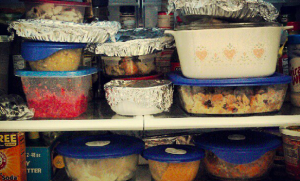
image courtesy of photo bucket.com
I know where the Parkers will spend this Thanksgiving, and you can bet there will be leftovers. They’ve learned their lesson.Can’t blame them, really, for what happened a few years ago. That Thanksgiving—2011, if I remember right—was the first one Clay and Dorothy Parker spent on their own. Their kids had come in all the years before, two sons and a daughter, their own kids and spouses in tow. Clay isn’t sure how it came to be that his children had ended up flung all over the country, other than that modern bit of philosophizing a lot of parents offer: “They got out of college and had to go where the work was.” In this case, “work” meant Oregon and Wisconsin and Texas. All three are a long way from Virginia.
The Parkers tried, I’ll give them that. For five years they all gathered on the hilltop where Clay and Dorothy live, the driveway full of rental cars and castoff luggage, what was now four families trying to reconnect as one. But on that Thanksgiving of 2011, that all changed. One son had promised his wife they could visit her family that year. The other son became snowbound. And the daughter? Well, I guess lawyers are too busy some years to pause and give thanks.
So it was just Clay and Dorothy in that big old house on the hill, trying to pretend things didn’t seem so cold and lonely. Didn’t make sense for Dorothy to cook a turkey that year. Or make the stuffing. Or even the peanut butter pie. Clay got the idea that his wife had been cooking Thanksgiving dinners for almost forty years by that point, so maybe he’d just give Dorothy the year off. The two of them would instead head down to the Cracker Barrel by the interstate for Thanksgiving. Have someone else cook and clean up for a change. And friend, let me tell you this: Dorothy jumped all over that.
Turned out they weren’t alone. I’d always thought a restaurant would be a lonely place come Thanksgiving day (and so did the Parkers, both of them told me the same), but the Cracker Barrel was full to bursting that day. People everywhere, and all in a fine mood. Clay and Dorothy would never say so to their kids and grandkids, but I have it on good authority those two had the best Thanksgiving of their lives. Until that night, anyway.
You see, Clay’s a snacker. Always has been. Dorothy’s always on him about it, says the man will eat a dozen bad meals a day instead of three good ones and it’ll put him in his grave sooner or later. I won’t say much to that. I’m a snacker, too. But when he came down the steps that evening and took a left into the kitchen, thinking there wouldn’t be anything in the world better than a cold turkey sandwich with a little bit of cheese, there wasn’t any. Wasn’t any stuffing, either. And you might as well forget about that last piece of pie, because there wasn’t any pie to begin with.
And that’s when it hit him. All the joy that had carried him through that Thanksgiving, the laughing and the talking and the little sighs Dorothy gave as she thought about all those dishes she didn’t have to wash, that all faded away. Because, you see, Clay and Dorothy had just eaten and gone. No leftovers.
Big deal, you might think. And you’re right, maybe it isn’t. After all, leftover turkey is one of those things best left alone. My experience, anyway. But I’ve never forgotten what Clay said to me when I saw him down at the gas station a few days later, right after I’d asked how his Thanksgiving had gone and gotten more than I’d bargained for:
“Just ain’t the same without the leftovers, you know?”
I didn’t. But I’ve thought about it a great deal since, and now I think I do. By definition, a moment never lasts. It’ll all end at some point and give itself over to the next, and there’s no way of knowing if that next moment will measure up to all the bright and good in the one before. Like Thanksgiving at the Parker house. For one day a year, Clay and Dorothy have a family again. No need to email or Skype or talk on the phone, all their kids—all their life—is right there beside them. And even after those kids are left, Clay can sit down with his turkey sandwich and his little bowl of leftover stuffing and remember it all.
That’s what leftovers are to him. It’s his way of living a great moment all over again.
I saw him the other day, down at the bank. Said everybody was coming in this year, even his daughter the lawyer. Clay’s excited, and I’m excited for him. Dorothy wasn’t there. She was home, Clay said, cooking already. Had a whole list of things she wanted to make.
And then he smiled, thinking of all those leftovers.
***
In case you missed it, my friend and fellow author Amy Sorrells was kind enough to interview yours truly about my latest novel, In the Heart of the Dark Wood. She’s even giving away a free copy of the book. You can find both over at her website.

November 20, 2014
The Gospel of Hank
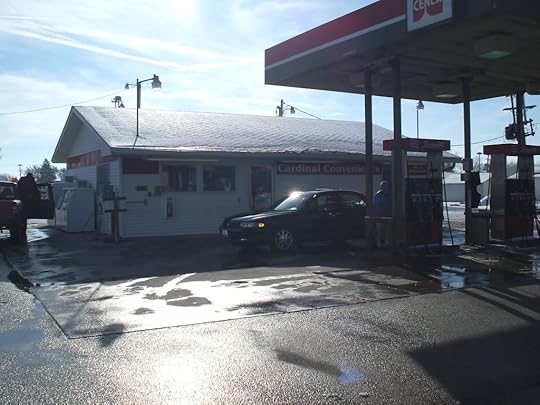
image courtesy of photobucket.com
Saturday afternoon, early November. Cold an dank. Mood? Questionable. Thirst? Very. So I pulled off the road along US Route 11 and into the parking lot of a no-name service station, the sort of which was what you’d expect for rural Virginia—dirty windows, questionable service, and people who made putting up with both well worth the effort.
People like Hank.
The man behind the cash register greeted me with a “Howdy” as I walked through the doors, each of which had been propped open by two twelve-packs of Budweiser. I nodded back and made my way toward the drink cooler in the rear of the store.
“BETTER ONES UP HERE,” shouted a voice.
I turned, and there beneath the mounted head of a deer sat an old man. His red suspenders clashed with his brown pants and blue shirt. He twisted in a vinyl chair and tapped his cane on the bin beside him.
“ICE MAKES ‘EM COLDER THAN THAT GOL’-DARNED ‘FRIDGERATOR CAN,” he shouted again.
“You got a point there,” I told him.
“HUH?”
“YOU GOT A POINT THERE.”
“AH,” he said and smiled.
I grabbed a Coke from the bin and swabbed the condensation with my shirt, nodding once more. The old man wheezed and coughed a hunk of phlegm into his handkerchief.
I took a sip and paced the store, taking stock of the sardines and canned vegetables, both of which had expired three months prior.
A mother and her brood of three came in just then, all of whom got their own howdy from the cashier. The kids made a bee line for the magazine rack while mom paced the aisles in search of an elusive Something.
“Do you sell salt?” she said to the cashier.
“LAST AISLE, YOUNG LADY,” the old man said, pointing his cane to the opposite side of the store. She smiled a thank you, and he smiled a you’re welcome.
He wasn’t done, either. In the next fifteen minutes, the old man had noticed the keys a customer had dropped, reminded another that his headlights were on, and squished a rather nasty cockroach.
“You have a pretty good helper over there,” I told the cashier as I paid.
He smiled and said, “Yeah, Hank’s been around forever. Used to own the place until he started getting sick.”
As if on cue, Hank began hacking again.
“So he still comes around?” I asked.
“Yep,” he said as he offered my change. “He’s deaf, weak, and the doc told him last month all those non-filter Camels have eaten his lungs up. But he still shows up every day wanting to help out and do somethin’.”
I shoved the change into my pocket and looked at Hank, who had made himself busy by using his cane to scrap half of the dead cockroach from the bottom of his boot.
I had to smile at the sight. Though I knew nothing of the man, it seemed so utterly Hank.
That a simple man in a no-name gas station on a fall afternoon could teach me something was a little unexpected, but then again there are lessons to be learned in most anything. Especially in the sight of an old man clinging to what little life he had left.
Strip away theology’s pretense and philosophy’s theories and we are faced with this one basic question when it comes to the conduct of our lives—what does God expect from us each day?
Over the years I had come up with many possible answers—to love Him and others, to do our best to leave the day a little better than we’ve found it, and so on. But after watching Hank, I knew the real answer to that question.
What does God expect from us each day? Simple.
To show up.
We can give God our hearts and our desires, give Him our minds and our talents, but if we don’t give Him our time, those things just don’t matter.
Poor Hank could have spent his last remaining days at home watching HGTV, but he didn’t. He still showed up in that little gas station every day willing to do whatever he could to help despite his weaknesses and infirmities. I think we should do the same.
Because no matter how wounded we are, no matter how broken and beaten, we can always do something to help. We can always make a difference.

November 17, 2014
And the winners are…
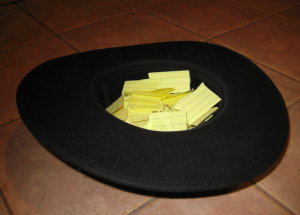 Thanks for helping make release week for In the Heart of the Dark Wood a great one!
Thanks for helping make release week for In the Heart of the Dark Wood a great one!
The winners of the signed books are:
Jewel Jones
Dusty Foutz
Beth Holt
Congratulations to Jewel, Dusty and Beth and thanks to everyone for participating. There are more giveaways to come. You can get notifications of giveaways, reviews, interviews and other book news by joining the In the Heart of the Dark Wood Facebook Page.

November 11, 2014
Release Day: Heart of the Dark Wood
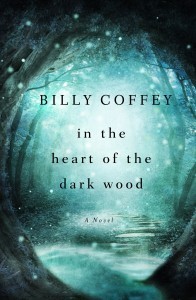
In the Heart of the Dark Wood cover
It’s always a special day around the Coffey house when a new book comes out. Today is one of those days. My fifth novel, In the Heart of the Dark Wood, is now available everywhere.
To help kick things off a bit, I’m giving away three signed copies. All you have to do to enter is leave a comment. I’ll put all the names in my cowboy hat and let the kids choose the winners, which I’ll announce back here on Monday, November 17.
As always, all the work I put into my stories would be impossible without all of you who take the time to stop by my tiny corner of the internet. You guys are the reason I write, and I thank each and every one of you for all the support you continually give.

November 7, 2014
An Interview with the doctor

In the Heart of the Dark Wood cover
I’m over at Random Jottings today sharing some thoughts about the writing process with friend and fellow author Richard L. Mabry, M.D. You can find the interview here.
Hope to see you there!

November 4, 2014
Designed to Work: Are We Meant for Toil?
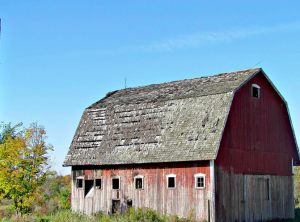
photo by Sandra Heska King (used with permission)
Sitting in a corner office or plowing the back forty:
What comes to mind when you consider a hard day’s work?
I’m pondering that over at The High Calling today. I hope to see you there.

October 30, 2014
Going the distance
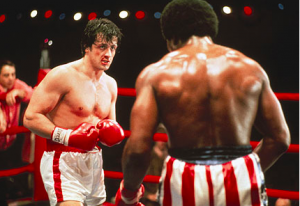
image courtesy of Google images
I was four when I saw my first grown-up movie. Dad took me. We stood in line and got popcorn and a big Coke and he let me eat all the M&Ms I wanted so long as I promised to sit still and be quiet. It wasn’t easy.
Looking back now, I understand that I was only a body. My father isn’t the sort of guy who would ever go see a movie alone (nowadays, he’s not the sort of guy who’ll go see a movie at all). Mom wasn’t interested in coming along, my sister only a baby. That left me.
“I want to watch this,” he told me when the lights dimmed. “Okay? You won’t understand it, but that’s okay. Just eat.”
Dad was right—I didn’t understand that movie at all. Just people talking about things I couldn’t follow, punching and exercising and showing off muscles and cussing. The good guy? Boring. The bad guy? Not so bad, unless you count the fact that he had kind of a big mouth and thought he was pretty much the best person in the world.
I was the only one in the entire theater who spent much of the movie counting ceiling tiles and kicking the chair in front of me, though. Everybody else acted like this was the best thing they’d ever seen. The entire two hours came down to a fight between the good guy and the bad guy. They circled around and beat each other senseless. That’s when people started standing up in their seats. Started hollering for the good guy. Started cheering. I was a four-year-old boy whose entire life revolved around supper and baseball and the monster I knew lived under my bed, but even I understood the movie I was watching wasn’t real and the good guy on the screen had no idea people were cheering for him. But they all cheered anyway, standing up and waving their arms, and then I got into the act, too. Dad, he just sat there and looked at me.
I’ll never forget that. To this day, whenever I’m flipping around the channels and see Rocky on, I’ll stop and watch. I’ll remember all those people cheering in the theater and my dad sitting there stone still and silent, but I’ll also remember the way his eyes looked—wide and gleaming—and how I knew that on the inside, he was cheering Rocky on, too. Because Rocky was him. Rocky was all those people. Rocky was me and you and everybody.
I’ve seen the other movies, six of them total. Rocky beating Apollo and Rocky beating Mr. T and Rocky beating a big Russian, but none of them are as good as the first. It took me a while to figure out exactly why, but I have now. I sat down and watched that movie over the weekend, and it hit me in a tiny bit of dialogue between Rocky and his fiancee, the adorably awkward Adrian. Read this:
Rocky: I can’t beat him.
Adrian: Apollo?
Rocky: Yeah. I been out there walkin’ around, thinkin’. I mean, who am I kiddin’? I ain’t even in the guy’s league.
Adrian: What are we gonna do?
Rocky: I don’t know.
Adrian: You worked so hard.
Rocky: Yeah, that don’t matter. ‘Cause I was nobody before.
Adrian: Don’t say that.
Rocky: Ah come on, Adrian, it’s true. I was nobody. But that don’t matter either, you know? ‘Cause I was thinkin’, it really don’t matter if I lose this fight. It really don’t matter if this guy opens my head, either. ‘Cause all I wanna do is go the distance. Nobody’s ever gone the distance with Creed, and if I can go that distance, you see, and that bell rings and I’m still standin’, I’m gonna know for the first time in my life, see, that I weren’t just another bum from the neighborhood.
There. Right there. That’s why people loved that movie, why they love it still. Because here’s a guy who knew he couldn’t win, but that was okay. All he wanted was to last, to go the distance with the champ, to hear that last bell and still be standing, because then he would finally knew he wasn’t just another bum. And we all have something like that in our lives, don’t we? We all have that one thing that could prove to us we’re not bums, we’re somebody. Living in that neighborhood or having that job or driving that car, and as long as we don’t have that, we’re nobody.
I know a lot of people who fall for that lie. I’ll raise my own hand and count myself first.
The truth is we all have something to prove, if not to others then at least to ourselves, and I spend a great deal of my time wondering if that’s such a bad thing or not. Sometimes I think it is. Other times, I think it isn’t. But I do know this: Rocky lasted those fifteen rounds. He went the distance with the champ. But I don’t think that happened because of luck. I think it more had to do with the fact that he wasn’t a nobody to begin with. He was somebody, and I think we all are.

October 27, 2014
Have a God Day
 My son is of the age when toys are no longer toys as much as they are necessities. That’s how he approaches me with whatever new trinket has caught his eye—“It’s not just that I want this, Dad. I NEED it.”
My son is of the age when toys are no longer toys as much as they are necessities. That’s how he approaches me with whatever new trinket has caught his eye—“It’s not just that I want this, Dad. I NEED it.”
Rarely works, of course. No ten-year-old boy NEEDS a basketball hoop, not when there’s one on the street just next door for anyone to use, or a new video game, or a Nerf gun that will end up in the grass by the creek, forgotten.
For the past month, it’s been a cell phone. His reasoning has been strong—I’m not home right after school some days, you might need to call or check in, that sort of thing. He’s wise enough to leave out the real reason (all of his friends have one; they look like cyborgs, faces always stuck in some sort of screen). But his sister has a phone, and, well, every kid comes born with an instinctual knowledge that if you can’t convince your parents, you can always wear them down.
So: a cell phone. He carried it home from the store last week with all the care and love as a father would bring his firstborn. Not a smartphone (he couldn’t wear us down that much), but the sort that can only call and text, the kind my son associates with the uncool and the elderly.
Thus far, all has gone well. The phone hasn’t gone lost, hasn’t ended up in the grass by the creek. He hasn’t used it to call Brazil or Kuala Lumpur. But my son does text. My son texts a lot. And, for whatever reason, mostly to me.
They come in the mornings especially, when I’m on my way to work. A steady stream of smiley faces and winks that always end with HAVE A GOD DAY. Great kid, my boy, even if he is a little spelling-challenged. He says he’s still getting the hang of typing with his thumbs. But his texts to me? He says he reads those twice before he hits send, making sure every letter and word is right. Which means my son doesn’t want me to have a GOOD day at all. He wants me to have a GOD one.
I told him that sounded just fine but that I didn’t know what a God day was. Turns out, he has them all the time.
My son says a God day usually starts out like any other, meaning you still don’t want to get out of bed. But then you do, you get up and get dressed and have breakfast, and that’s when the God day starts—when you go out—because my son says you need God in your bed but you need Him in the world especially.
On a God day, you pay more attention to how the sun is coming up over the mountains than you do all the traffic. And when you have to stop for the train, you don’t mumble things you’re not supposed to near as much as you wave to the engineer and the people you’re stuck there with.
On a God day, you say hi to everyone and ask them how they are, because that’s what people need.
On a God day, you always do your best no matter what it is. That doesn’t mean you’ll always succeed (“This isn’t a fairy tale, Dad,” my son says), but failing doesn’t hurt near as bad if you know you tried.
On a God day, you pray. A lot.
On a God day, you always laugh at least five times, because even if the world is full of sadness, that doesn’t mean your heart has to be that way, too.
On a God day, you come home and hug the ones you love, because they’re the best things God has given you and that’s why you need to take care of them.
I like that. I think my son’s onto something. So no matter who and where you are and what’s going on in your life, I hope you have a God day.

October 23, 2014
Shadowlands
I didn’t know him well but I knew him enough, and I’ll tell you what he once did on those warm spring and summer nights, and why he tried to repay a debt he believed was beyond payment. I’ll tell you what he once told me, and I’ll let you decide whether what he saw was the truth or the remorse that had come to well up in him. I have never answered that question for myself. I suppose it doesn’t matter either way. Real or not, he was still haunted.
He was what we in the country call a Good Man. He shied from neither work nor church, donated annually to both the rescue squad and the fire department. He raised three kids with a wife he’d met when they were freshmen in high school. He never made trouble. Don’t listen to those who say a person must do great things in life to be known as great. This world is full of great people. They are the ones who keep their heads down and a semblance of joy on their faces, who work hard at building their lives and wish nothing more than the freedom to do so. That was him.
And yet we can all be Good when we step beyond our doors. Inside our homes, hidden from the eyes of the world by pulled curtains and drawn shades, that is where we often find our truest selves. It is a hidden tragedy of life that we save the worst parts of us for the ones we most love, giving to them the darkness we take such pains to hide from others. That was him, too. It’s hard to keep a secret in a town this small, but that was one. No one ever knew he abused his wife until she passed.
The cancer took her—not his fists, but a lump of tumor that had lodged itself inside her stomach. I didn’t go to the funeral. I heard it was fine as funerals go, sadness with hope thrown in. It was all sadness for him. They buried her at the foot of a knoll where the oaks grew tall and wide, and all he said after was that his wife would approve of such a place to rest.
I don’t know when he began spending the nights by her grave. I suppose it was gradual, daily visits that turned into once in the morning and another time in the afternoon, first minutes and then hours. Her passing became a reckoning for him, and he vowed to care for his wife in death as he should have cared for her in life. All those nights of having her there in bed, of waking to the smell of coffee and eggs, gone now and forever. He said he slept in the cemetery to feel her again for the first time in years. It isn’t often, just when he feels lonely and sorry. Sometimes, those two feelings are the same.
He told me this, too:
Deep in the night when there was only the dark and the stars, the dead would sometimes wake him. He would sit up and stare at the crest of the knoll overlooking his wife’s grave, and he would see the shadows of the lost in the midst of a long walk that never ended. Those shadows never bothered him. He said he doubted they could even see him. But he knew why they wandered. He said those were the ones who’d lived their lives burdened by the things they’d done, just like he did now. Even in death, their burdens followed them.
That was nearly twenty years ago. I don’t know that I’d call him a Good Man now, with all that I know. But I can say he’s a better one. And I can say he still sleeps at the cemetery sometimes.
We all have our shadows. They linger in our memory, haunting us in the remorse of those things we’ve done and the regrets of those things we’ve left undone. We endure our sins. We suffer their consequences. We trust that time will put enough space for forgiveness between our Then and our Now. Sometimes, that’s just what happens. Other times, those shadows rise up again. That’s when we’re left with the choice to leave our past behind as a marker that reminds us of how far we’ve come, or falling for the lie that who we once were will always be who we are now.

October 21, 2014
Killing Henry
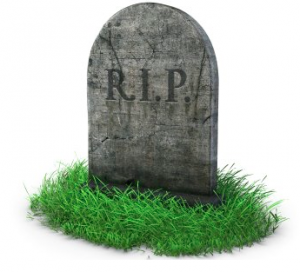
images courtesy of google images
We buried Henry last week. It’s probably safe to say that deep down my family didn’t want to; despite the fact he never spoke and was never seen, we enjoyed having him around. But there are some things in life you just need to let die. Henry was one of those things.
He first appeared over the summer. I was washing the truck, got sidetracked, and ended up leaving the hose running all night. My son found the mess the next morning and wondered aloud whose fault that was.
“Henry did it,” I told him.
“Who’s Henry?”
“Oh, you know Henry. He messes up a lot of stuff around here.”
It wasn’t the first time my son walked away from me shaking his head.
And thus Henry was born. He made another appearance two days later, when a certain little boy’s bedroom was discovered in disarray.
“Who messed up your room?” I asked him.
“Henry,” my son said. “He messes up a lot of stuff around here.”
It caught on. My daughter blamed Henry for all the toothpaste left in the sink. I blamed him for not mowing the yard. Even my wife got into the spirit of things by stating was Henry, not her, who had left the television on one Sunday afternoon. During Keeping Up with the Kardashians, no less. Henry loved trashy television.
Then came two weeks ago, when my son’s math homework clashed with an overwhelming need to finish the Lego town he was building. Addition and subtraction was no match for a new pet store. His homework wasn’t completed. So said the note from his teacher the following afternoon, which contained this postscript:
Who is Henry?
That was when we decided Henry had to go.
It was a tough decision. Because in his own way, Henry allowed each of us to skirt such things as duty and accountability. It was always easier to blame him rather than ourselves for the things we should have done but didn’t and the things we did but shouldn’t have. We didn’t have to be responsible. Sounds awful, I know, but few people truly crave responsibility. When something goes wrong, the first question always asked is, “Who’s responsible?” Who among us longs to answer that with “I am”?
But of course taking responsibility is something we all have to do. We all have to clean up our messes, we all have to do our jobs, and we all have to be careful of what we allow into our hearts. It’s easier to blame something else, especially if it’s an imaginary someone who can’t defend himself. Easier, but not better.
So rest in peace, Henry. I’ll miss you when the truck gets dirty and the grass needs cutting. I’ll have to do those things on my own now. I think I’m the better for it.




